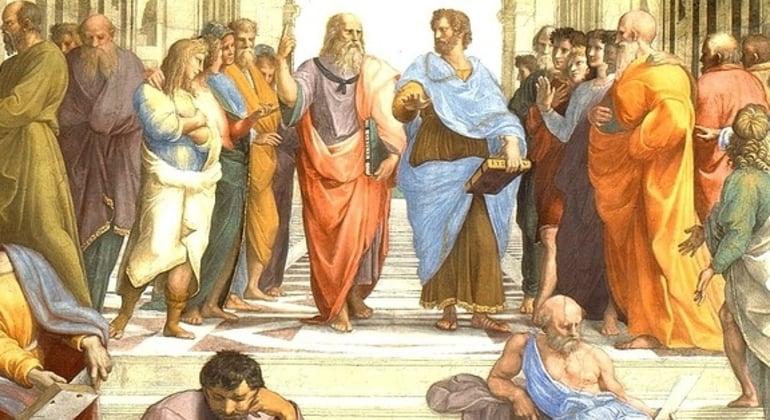Reading: The Beginnings of Democracy, Text and Comprehension Questions
- Due No due date
- Points 12
- Questions 6
- Time Limit None
Instructions
The Beginnings of Democracy: Ancient Athens, Greece

The Parthenon temple in Athens.

The Greek philosophers Socrates (red) and Plato (blue) vote on what to eat for lunch.
Instructions:
Read the article, then answer the comprehension questions
The Beginnings of Democracy
Democracy, or rule by all the people, is often upheld as an ideal form of government. Democracy began in ancient Greece, but it developed slowly.
Before there was democracy, the people of Greece came under other forms of rule. First there was monarchy, in which a king rules over the people. Next there was oligarchy. Here a small group of people ruled over everyone else. Next at the end of the Dark Ages, a small group of nobles shared power with the king. Then during the sixth century B.C., there were problems with oligarchies. This led to the rise of tyrants. Even though tyrants seized power by force, the Greek people supported them. The tyrants promised to reform laws and help the poor. Finally, in about 510 B.C. the people had had enough of tyrants. They threw the tyrants out of power. The people decided to share power. This was the beginning of democracy.
In the democratic city of Athens, Greece, citizens took part in the government. Not everyone, though, could be a citizen. A citizen had to be a male over the age of 18. Usually a man's father, and sometimes his mother's father, also had to be citizens. Only about 15 percent of the 300,000 people living in Athens could be citizens. Women and children could not be citizens, even though they made up 48 percent of the population. Foreigners living in Athens could not be citizens, even though they made up 12 percent of the population. Slaves could not be citizens, even though they made up 25 percent of the population.
The democracy of the ancient Greeks is not the ideal for which modern countries strive. But the Greeks can take credit for the beginning of an idea.